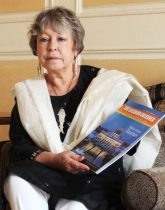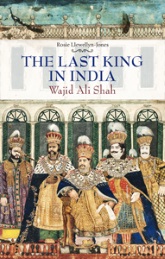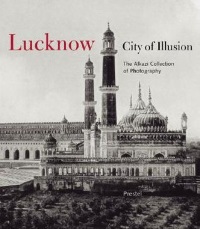Rosie Llewellyn-Jones

Birth—
|
An authority on colonial India from the 18th to the 20th century, Rosie Llewellyn Jones was appointed a MBE for services to the British Association for Cemeteries in South Asia and British Indian Studies in the 2015 New Year’s Honours Lists. Rosie has worked for the British Association for Cemeteries in South Asia since 1977, both as their Honorary Secretary and as editor of the bi-annual journal. The association works to protect and record the inscriptions on the graves of European civilians, and soldiers who died before World War One and between the two world wars in Britain’s former Empire. They also offer advice to those travelling to South Asia who want to visit European cemeteries, and can help track down the graves of relatives and others of interest. Rosie studied Indian languages at SOAS and gained her PhD there, and has since dedicated her working life to writing and lecturing on India in the 18th and 19th centuries. Her specialism is Lucknow, “that curious northern city” that was home to the Nawabs of Awadh (Oude), and the scene of bitter fighting in the 1857-1858 Uprising. Most critically acclaimed of her many books is The Great Uprising in India: Untold stories, Indian and British (2007). Rosie cites this book as a highlight of her career, as it required a lot of research into a relatively sensitive subject, and because she really wanted to “creep around the edges” of history and find the stories of ordinary Indians and British people whose lives were caught up in the conflict and who otherwise wouldn’t be heard. Far from considering her recent award as the pinnacle of her career, Rosie continues to expand her field of academic research. Her current projects include preparing lectures on the 1922 British Mandate in Iraq and considering the Indian influence there, as well as influences from the First World War, when almost all the troops in Iraq were Indian, as Britain was keen to defend vital communications routes to India. She is also continually interested in the impact of colonial architecture on communities, for example the impact of an aggressive clock tower on otherwise low-rise architecture. Rosie travels frequently, recently returning from Lyon where she presented a series of lectures to colleges and the public on Claude Martin, an army officer who rose to the position of Major General in the British East India Company’s Bengal Army. Whilst in France, Rosie visited one of their specialist ateliers to acquire a new hat, in anticipation of her visit to Buckingham Palace on 24 February.
|

 The Last King in India: Wajid Ali Shah
The Last King in India: Wajid Ali Shah Lucknow: City of Illusion
Lucknow: City of Illusion